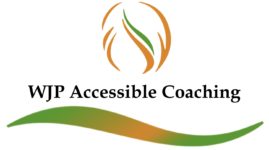12% of your success comes from your rational brain….but
88% is born in the emotional part of the brain.
Get Smart – Be Emotionally Intelligent
Emotional Intelligence EQ is a set of skills that enables us to make our way in a complex world – it is the ability recognise, understand, manage, regulate and influence our emotions which influences our ability to cope in the various complex environments we work and live in.

EQ Individual Assessment
Designed for use in a wide variety of coaching and development situations and work settings. It focuses on the impact of emotional intelligence at work and offers suggestions for working more effectively with colleagues, supervisors, and clients.
Specific applications for this report are:
- Individual Development
- Organizational Development
- Career Counseling/Outplacement Services

EQ Leadership Assessment
Examines EQ-i 2.0 results through four key dimensions of leadership: Authenticity, Coaching, Insight, and Innovation. As an option, your results can be compared against those of top leaders, creating a coaching benchmark for exceptional EI performance. The leadership report also contains insights on the leadership and organisational implications of your results, information about which skills have the highest potential to be leadership derailers, as well as strategies for development aimed to help you reach their true leadership potential.
Specific applications for this report are:
- Leadership development
- Executive development and coaching
- Developing high potential leaders
- Compare results against the top leader as a benchmark
Reliability and Validity of EQ assessments
The Emotional Quotient Inventory 2.0 (EQ-i 2.0) measures an individual’s emotional intelligence. Science and professional feedback from the EQ-i® strengthened the direction of this second generation assessment. Now, it’s a complete experience with a new and intuitive model, customizable reports, and an online platform for easy administration.
Reliability
The reliability of an assessment is often referred to as its consistency. The two most important types of reliability for assessments are:
- Internal Consistency: refers to how well all the items of a certain scale measure the same idea
- Test-Retest: refers to how well the assessment can produce the same results over time for the same person
The EQ-i 2.0 exhibits strong reliability, both in terms of internal consistency and test-retest. This means that your clients’ scores will remain stable over time (unless development efforts are used to improve their scores) and that items measuring a certain subscale all tap into aspects of that subscale.
Validity
Validity ensures the accuracy and usefulness of an assessment. Although there are many different types of validity, they all focus on ensuring the assessment is measuring what it was designed to measure and whether it can predict important outcomes and can be assessed through a combination of several different types of validity evidence.
The EQ-i 2.0 was originally developed in North America but has been used in all regions of the world. The structure of the test, the consistency and accuracy of the items, and the results produced have been replicated across the globe and continues to enable a wide variety of cultures and languages to use the tool effectively to measure emotional intelligence. Overall, the EQ-i 2.0 has extensive evidence supporting its external validity: Predicts job performance, can be used to predict and improve leadership competencies, holds up in different regions across the world and is based on a history of assessment research spanning decades.


